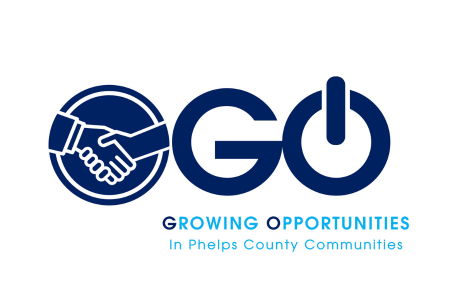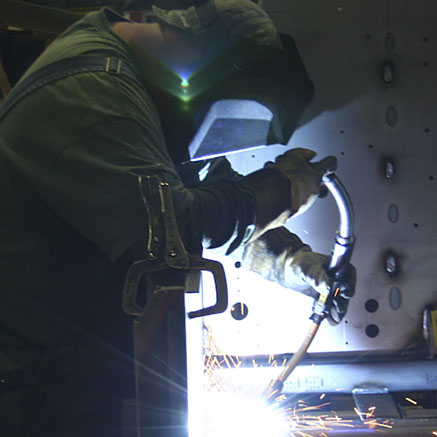
Crowdfunding Helps Entrepreneurs Generate Funds While Researching Marketability
November 29, 2017
When local attorney and businessman Robert McCormick decided to produce a new lithium-battery-powered commuter scooter, he chose a modern-age method to test the marketability of his product and generate start-up funds at the same time.
McCormick and his Probity Cell LLC partners launched a crowdfunding campaign through Kickstarter, on online fund-raising platform, to announce their Glion scooter in 2014. The campaign secured an initial customer base and seed money to begin manufacturing scooters.
Crowdfunding, the practice of funding a project by raising small amounts of money from many people, can be an effective route for entrepreneurs who are attempting to fund smaller local projects or larger projects like McCormick’s scooter that seek a national or worldwide customer base.
The idea of crowdfunding, or gathering investors to launch a product, has existed for ages. But internet platforms such as Kickstarter have made the process easier and more far reaching.
McCormick and his partners, Jeff Kong and Wei Chang, first launched a Kickstarter campaign in September 2014. Their goal was to raise $40,000 to start producing the Glion Smart Scooter. The campaign attracted 229 backers and $106,167 in funding.
Some crowdfunding campaigns offer backers a t-shirt or a thank-you card for supporting a project. Probity offered the Glion scooter at a reduced price, thus securing funding and customers at the same time.
“The product development cycle is very long and expensive,” Robert said. “You need to be very focused on getting a product sold so you can begin to improve your cash flow. Crowdfunding was an obvious way for us to do that. We were basically able to begin selling a product through crowdfunding and use those funds for product development before we actually had a product. It has been a really important tool for our business.”
Besides generating a cash flow, the process also provided them with valuable market research to see if their product would sell before investing in the manufacturing process.
“You can get so caught up in developing a product that you never really figure out if you can sell your product,” McCormick said. “Crowdfunding allows you to get a working prototype and get to those core questions quickly. To me, it’s just a wonderful way of validating your ability to sell or market your product.”
The Probity partners created a fold-up version of their commuter scooter, the Dolly, in 2015 and launched a second Kickstarter campaign for that project. They once again set a $40,000 goal and surpassed that goal by $12,000 with 86 backers.
What they learned in the process is that their crowdfunding backers became more than just customers and a dollar amount.
“Like creators, crowdfunding backers are a different breed,” McCormick said. “They took a risk on us. They believed in us and our product and basically risked several hundred dollars that we would deliver. When we suffer a setback (and we have), they pick us up, cheer us on and come to our defense. They are mentors, advisors, cheerleaders, advocates-all tied into one. Our Kickstarter backers have been the greatest resource to our small business, and the resource is beyond just financial.”
One crowdfunder, Ken Anderson of Kearney, became the inspiration to develop their newest product, the SNAPnGO fold-up mobility scooter.
In early 2017, Probity created a prototype for its SNAPnGO scooter and once again launched a Kickstarter campaign with a $40,000 goal. But, this time, the campaign missed reaching the goal by $20,000.
McCormick said they needed to attract a new audience with the mobility scooter, and the Kickstarter campaign may not have been the right avenue. Despite not meeting the goal, they proceeded with manufacturing the SNAPnGO, and it should be available to purchase later this year through dealer networks, including Mid Nebraska Mobility in downtown Kearney.
Kickstarter doesn’t charge any fees for campaigns that don’t meet the goal, so entrepreneurs are not out any money for trying. Fees range from 8-10 percent of funds raised for successful campaigns.
McCormick recommends crowdfunding for any project, large or small.
“I think that the sooner you begin to interact with potential customers about your idea or product, the better,” McCormick said. “Obviously, it helped our cash flow tremendously.”
McCormick said that bank loan officers should also be familiar with crowdfunding as an alternative resource for entrepreneurs.
“They have constant requests from entrepreneurs who are seeking money,” McCormick said. “Instead of saying no, why don’t they show them this option.”
Anyone with questions about crowdfunding is encouraged to contact McCormick for more information.
To learn more about the Glion, Dolly and SNAPnGO scooters, visit the website at www.glion-scooter.com.







